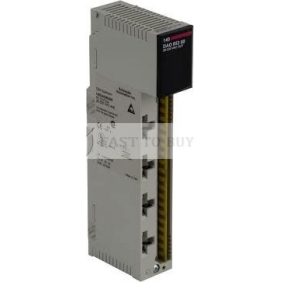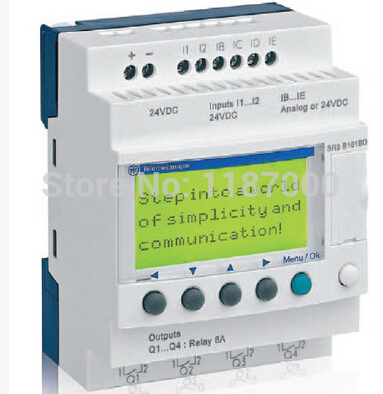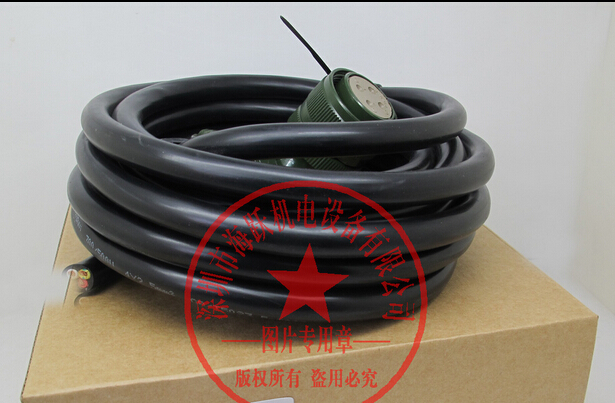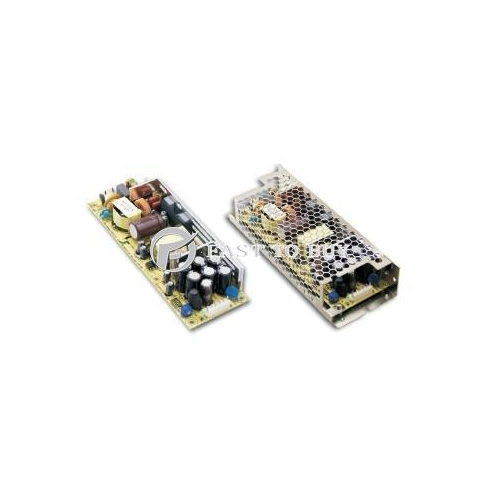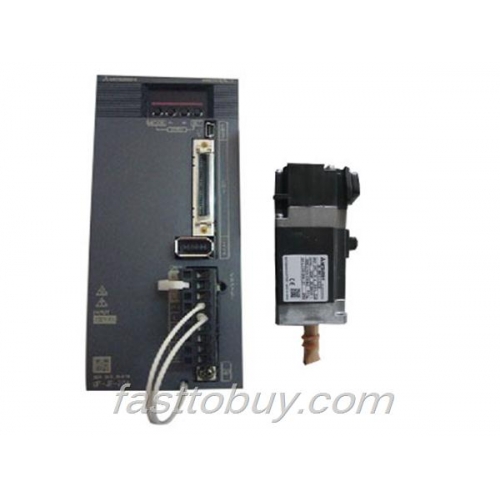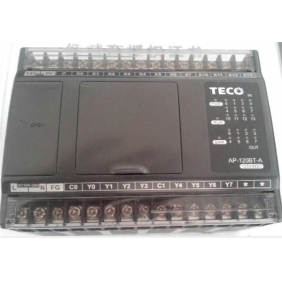| No comment |
Your Position: Home
> Control System > PLC > Other PLC > AP-240BT-A TAIAN PLC 100-240VAC NPN/PNP 24 point Transistor 16 point AP Original brand newCategories
View History
Description
AP-240BT-A TAIAN PLC 100-240VAC NPN/PNP 24 point Transistor 16 point AP Original brand new
AP series is the latest generation of PLC developed by TECO, with high-speed and high quality, suitable for small equipment control of small general PLC. AP series PLCs have multiple communication function, high speed positioning control of a counter, pulse output function, can be connected directly to a computer via USB communication port.
General Specifications
Item | AP-110BR/BT/BP | AP-114BR/BT/BP | AP-120BR/BT/BP | AP-130BR/BT/BP | AP-224BR/BT/BP | AP-232BR/BT/BP | AP-240BR/BT/BP | AP-260BR/BT/BP | ||||||
Basic set style | Integral type | |||||||||||||
Computing control | Stored program, to-and-fro back-and-forth scanning mode | |||||||||||||
Input/output control | End regeneration method (when performing to END instruction) | |||||||||||||
Program languages | Ladder diagram/sentence table/SFC (Ladder/IL/SFC) | |||||||||||||
Program capacity | 4K steps | 8k steps | ||||||||||||
FlashRom power-off keeping | Flash keeping | Flash keeping | ||||||||||||
Number I/O | Input point | 6 | 8 | 12 | 16 | 12 | 16 | 24 | 36 | |||||
Outpoint point | 4 | 6 | 8 | 14 | 12 | 16 | 16 | 24 | ||||||
Expansion modules | Number I/O |
Cannot be expanded | 128 point | 256 point (read reference 1) | ||||||||||
Analog module | 7 groups of AP-8AD and 4 groups of AP-2DA | |||||||||||||
Max analog I/O | 56 input channels/8 output channels | |||||||||||||
Expansion card | Number I/O |
Cannot be expanded | AP-4DBD, AP-4RBD, AP-2D2TBD | |||||||||||
Analog I/O | AP-2AIBD, AP-1AOBD, AP-3MABD | |||||||||||||
communication | AP-485BD, AP-232BD, AP-ENBD | |||||||||||||
outhers | AP-RTCBD | |||||||||||||
Scan time | Basic instructions | 36 kinds | ||||||||||||
-ANB/ORB…etc are 0.18 micro second/step | ||||||||||||||
-LD/AND/OR…etc are 0.44 micro second/step | ||||||||||||||
Application instructions | 145 kinds | 156 kinds | ||||||||||||
Relay & Register | Number I/O relay | X000~X377 (8-bit) (256 point)/ X000~X377 (8-bit) (256 point) | ||||||||||||
Auxiliary Relay | General auxiliary relay: M0~M1535 (1536 point) | |||||||||||||
Special auxiliary relay: M8000~M8511 (512 point) | ||||||||||||||
Stepping relay | S0~S1023 (1024 point) | |||||||||||||
Timer | 100 point(100 millisecond: 44 point, 10 millisecond: 46 point, 1 millisecond totting up: 4 point, 100 millisecond totting up: 6 point | 256 point(100 millisecond: 200 point, 10 millisecond: 46 point, 1 millisecond totting up: 4 point, 100 millisecond totting up: 6 point | ||||||||||||
Counter | 136 point(16-bit: 100 point, 32-bit:36 point) | 256 point(16-bit: 200 point, 32-bit: 56 point) | ||||||||||||
Data register | General register: D000~D511 (512 point) | General register: D000~D2047 (2048 point) | ||||||||||||
Special register: D8000~D8511(512 point) | ||||||||||||||
Index register | 32 point: V000~V015/Z000~Z015 | |||||||||||||
Special register | F0~F1999: 2000 point (cannot be supervised by AP-PCLINK) | |||||||||||||
TAG | Tag N0~N7 (8 point), branch P0~P127 (128 point), input interruption 100*~150* (6 point) Timer interruption 16**~18** (3 point), counter interruption I010~I060 (6 point) | |||||||||||||
Constant | Decimal system (k) | 16 bit: -32768~32767; 32 bit: -2147483648~-2147483647 | ||||||||||||
Hexadecimal (K) | 16 bit: 0~FFFFH; 32 bit: 0~FFFFFFFFH | |||||||||||||
Floating point(E) | 1175494x10-44~3402823x1032 | |||||||||||||
Calendar | None | Select RTC expansion card | ||||||||||||
Second (D8013), minute (D8014), hour(D8015), day(D8016), month (D8017), year(D8018), week(D8019), and with 30 seconds added to correct | ||||||||||||||
Run/stop switch | Built-in | |||||||||||||
High-speed input(X0~X5) | High-speed counter | Uniphase: 6 point 20KHz | Uniphase: 4 point 100KHz+2 point 20KHz | |||||||||||
Biphase: 2 point 10KHz | Biphase: 2 point 50KHz+1 point 10KHz | |||||||||||||
Interruption input | 6 point (matching 100*~150*), pulse width 50 millisecond minimum | |||||||||||||
Pulse output( read reference 2) | Pulse output | 2 point Y0/Y1, , no complement | 2 point Y0/Y1, acceleration/deceleration, straight line complement | |||||||||||
PWM output | 2 point Y0/Y1 | |||||||||||||
Frequency | 200KHz | |||||||||||||
COMs | Writer | RS232, supply for the link of PC editing software | ||||||||||||
RS485 | Built-in one com | |||||||||||||
USB | supply for the link of PC editing software | |||||||||||||
Expansion card | Cannot be expanded | AP-485BD, AP-232BD expansion card communication | ||||||||||||
Self-diagnosis | Input/output check, operating overtime check, illegal instruction check and program grammar check and password setting | |||||||||||||
Supervision/ correct | Display program operation time, bit/character, device setting | |||||||||||||
Terminals | Cannot plug | Can plug | ||||||||||||
Size (WxHxD) | 95x90x70 | 124x90x70 | 175x90x70 | 124x90x85 | 150x90x85 | 175x90x85 | ||||||||
References | Reference 1: When the I/O module’s power is over the maximum supply power, one more power is needed. Reference 2: Only transistor output has this function | |||||||||||||
AP-240BT-A TAIAN PLC 100-240VAC NPN/PNP 24 point Transistor 16 point AP Original brand new
AP series is the latest generation of PLC developed by TECO, with high-speed and high quality, suitable for small equipment control of small general PLC. AP series PLCs have multiple communication function, high speed positioning control of a counter, pulse output function, can be connected directly to a computer via USB communication port.
General Specifications
Item
AP-110BR/BT/BP
AP-114BR/BT/BP
AP-120BR/BT/BP
AP-130BR/BT/BP
AP-224BR/BT/BP
AP-232BR/BT/BP
AP-240BR/BT/BP
AP-260BR/BT/BP
Basic set style
Integral type
Computing control
Stored program, to-and-fro back-and-forth scanning mode
Input/output control
End regeneration method (when performing to END instruction)
Program languages
Ladder diagram/sentence table/SFC (Ladder/IL/SFC)
Program capacity
4K steps
8k steps
FlashRom power-off keeping
Flash keeping
Flash keeping
Number I/O
Input point
6
8
12
16
12
16
24
36
Outpoint point
4
6
8
14
12
16
16
24
Expansion modules
Number I/O
Cannot be expanded
128 point
256 point (read reference 1)
Analog module
7 groups of AP-8AD and 4 groups of AP-2DA
Max analog I/O
56 input channels/8 output channels
Expansion card
Number I/O
Cannot be expanded
AP-4DBD, AP-4RBD, AP-2D2TBD
Analog I/O
AP-2AIBD, AP-1AOBD, AP-3MABD
communication
AP-485BD, AP-232BD, AP-ENBD
outhers
AP-RTCBD
Scan time
Basic instructions
36 kinds
-ANB/ORB…etc are 0.18 micro second/step
-LD/AND/OR…etc are 0.44 micro second/step
Application instructions
145 kinds
156 kinds
Relay & Register
Number I/O relay
X000~X377 (8-bit) (256 point)/ X000~X377 (8-bit) (256 point)
Auxiliary Relay
General auxiliary relay: M0~M1535 (1536 point)
Special auxiliary relay: M8000~M8511 (512 point)
Stepping relay
S0~S1023 (1024 point)
Timer
100 point(100 millisecond: 44 point, 10 millisecond: 46 point, 1 millisecond totting up: 4 point, 100 millisecond totting up: 6 point
256 point(100 millisecond: 200 point, 10 millisecond: 46 point, 1 millisecond totting up: 4 point, 100 millisecond totting up: 6 point
Counter
136 point(16-bit: 100 point, 32-bit:36 point)
256 point(16-bit: 200 point, 32-bit: 56 point)
Data register
General register: D000~D511 (512 point)
General register: D000~D2047 (2048 point)
Special register: D8000~D8511(512 point)
Index register
32 point: V000~V015/Z000~Z015
Special register
F0~F1999: 2000 point (cannot be supervised by AP-PCLINK)
TAG
Tag N0~N7 (8 point), branch P0~P127 (128 point), input interruption 100*~150* (6 point) Timer interruption 16**~18** (3 point), counter interruption I010~I060 (6 point)
Constant
Decimal system (k)
16 bit: -32768~32767; 32 bit: -2147483648~-2147483647
Hexadecimal (K)
16 bit: 0~FFFFH; 32 bit: 0~FFFFFFFFH
Floating point(E)
1175494x10-44~3402823x1032
Calendar
None
Select RTC expansion card
Second (D8013), minute (D8014), hour(D8015), day(D8016), month (D8017), year(D8018), week(D8019), and with 30 seconds added to correct
Run/stop switch
Built-in
High-speed input(X0~X5)
High-speed counter
Uniphase: 6 point 20KHz
Uniphase: 4 point 100KHz+2 point 20KHz
Biphase: 2 point 10KHz
Biphase: 2 point 50KHz+1 point 10KHz
Interruption input
6 point (matching 100*~150*), pulse width 50 millisecond minimum
Pulse output( read reference 2)
Pulse output
2 point Y0/Y1, , no complement
2 point Y0/Y1, acceleration/deceleration, straight line complement
PWM output
2 point Y0/Y1
Frequency
200KHz
COMs
Writer
RS232, supply for the link of PC editing software
RS485
Built-in one com
USB
supply for the link of PC editing software
Expansion card
Cannot be expanded
AP-485BD, AP-232BD expansion card communication
Self-diagnosis
Input/output check, operating overtime check, illegal instruction check and program grammar check and password setting
Supervision/ correct
Display program operation time, bit/character, device setting
Terminals
Cannot plug
Can plug
Size (WxHxD)
95x90x70
124x90x70
175x90x70
124x90x85
150x90x85
175x90x85
References
Reference 1: When the I/O module’s power is over the maximum supply power, one more power is needed.
Reference 2: Only transistor output has this function

